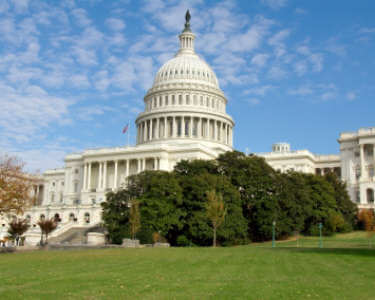
The legislation adds sexual orientation to the list of federally protected classes, and give states and local jurisdictions federal assistance to prosecute hate crimes.
The measure passed in the House as a stand-alone bill in April, but was attached to the $680 billion Defense Department authorization bill earlier this week. The Matthew Shepard Act, named after a gay college student murdered 11 years ago next week, was attached to the Senate defense-spending bill in July.
The House bill passed Thursday in a 281-146 vote, with 131 Republicans and 15 Democrats objecting to the measure.
Several Christian leaders have decried the hate crimes law, saying it could criminalize preaching against homosexuality. They point to cases in Canada and Sweden, where Christians have faced criminal prosecution for preaching that homosexual practice is a sin.
The leaders argue that all violent crimes are hate crimes and say state laws exist to safeguard the people the bill seeks to protect.
“This measure is about giving special rights based solely on sexual behavior,” said Family Research Council President Tony Perkins. “We applaud the 146 Members of Congress of both parties who had the courage to oppose this otherwise popular bill because it was burdened with this irrelevant provision. It violates the principle of equal justice under the law and also threatens to infringe on the free speech rights of the American people.”
He said the legislation will “lay the legal foundation and framework for investigating, prosecuting and persecuting pastors, business owners, and anyone else whose actions reflect their faith.”
Many opponents fear the measure could cause pastors to face prosecution if an attendee of their church commits a crime and blames it on sermons about homosexuality.
“If someone under their ministry is charged with a hate crime against a homosexual, the minister himself could be accused of inciting that violence because of his teachings,” wrote Barrett Duke, vice president for Public Policy and Research for the Southern Baptist Convention’s Ethics and Religious Liberty Commission.
His group is one of several, including Focus on the Family Action, the American Family Association and the Traditional Values Coalition, that have urged their supporters to contact federal lawmakers to express their opposition to the bill.
Other evangelical leaders say the hate crimes law is needed and that concerns about religious liberty infringements are overblown.
At a press conference in May, author Tony Campolo, founder of the Evangelical Association for the Promotion of Education, said evangelicals should want justice for homosexuals and transgendered persons. “Justice is love translated into social policy,” he said, “and this proposed law is designed to extend justice to Americans who often do not have avenues to obtain the same protection under the law that the rest of us enjoy.”
He said the bill does not infringe on ministers’ First Amendment rights. “There’s protection for those in the pulpit and for preachers to say what they want to say anywhere else, as long as it does not promote violence,” Campolo said.
Republican lawmakers said adding the hate crimes provision to a bill outlining the Pentagon’s budget for 2010 was an improper use of the legislative process.
House Minority Leader John A. Boehner, R-Ohio, said the bill was “radical social policy” that was being put “on the backs of our soldiers, because they probably can’t pass it on its own,” according to the Washington Post.
A vote on the Senate version of the defense-spending bill, which includes the hate crimes measure, could come as early as next week. If passed, it would head to President Obama’s desk for his signature.












